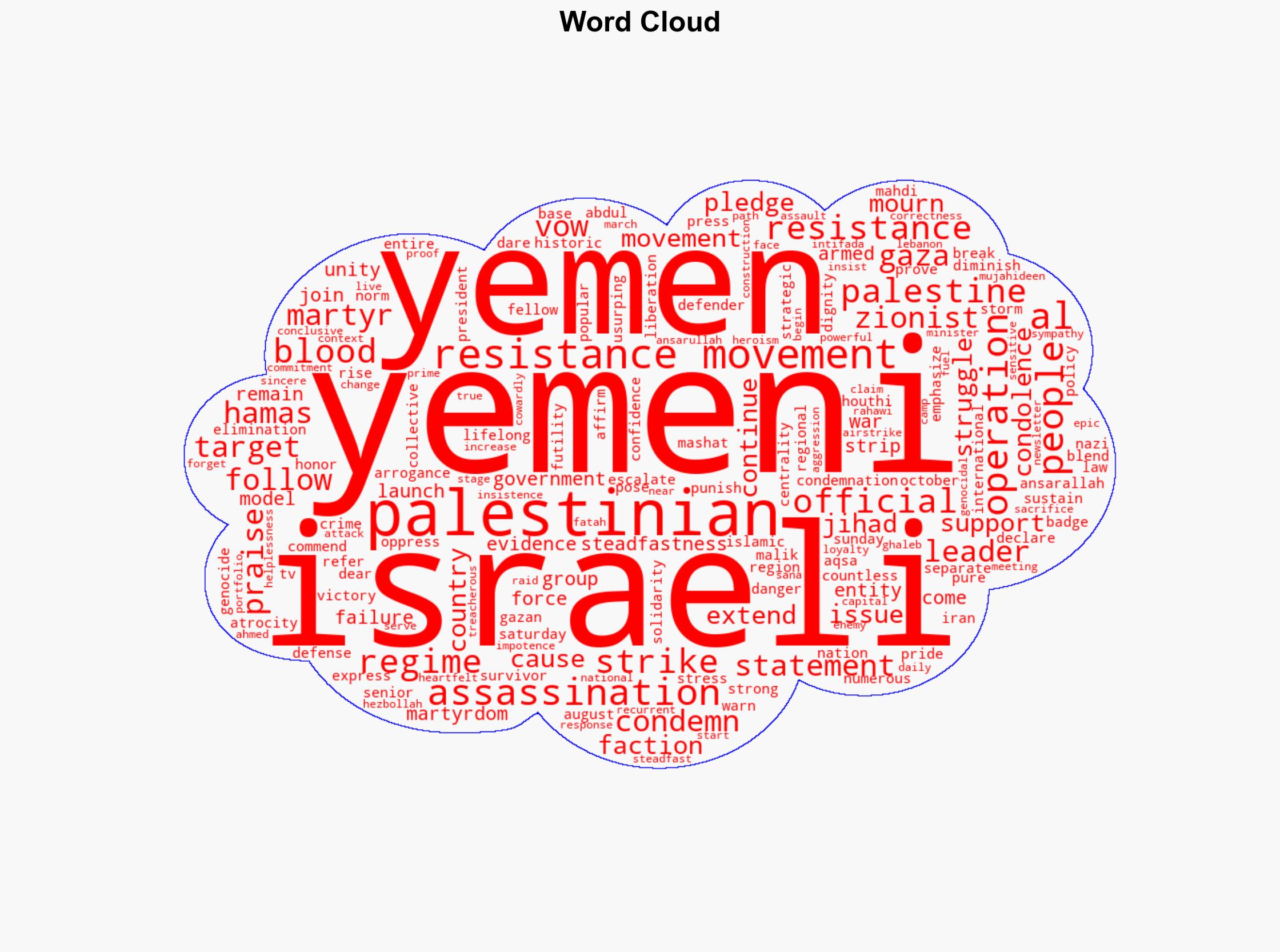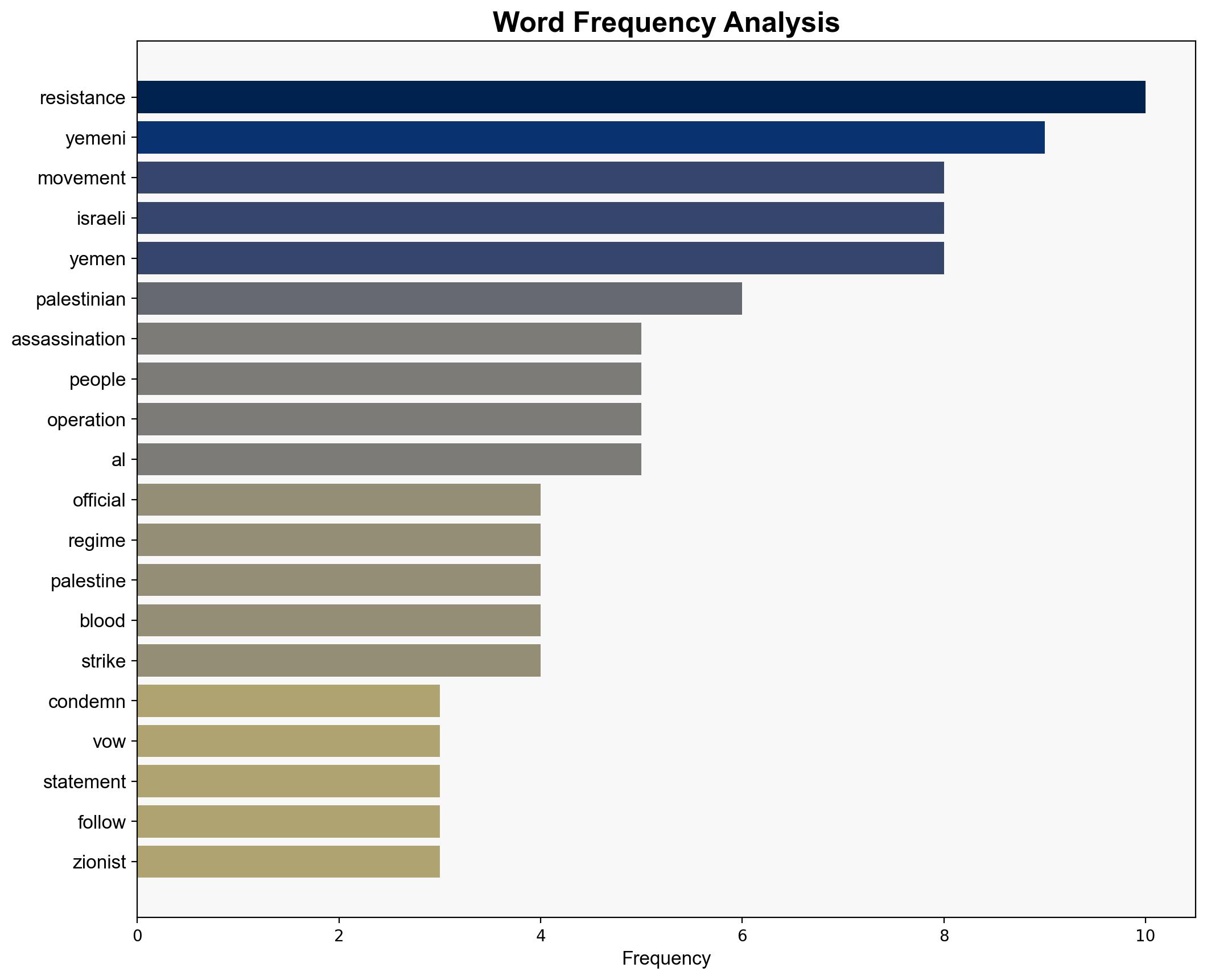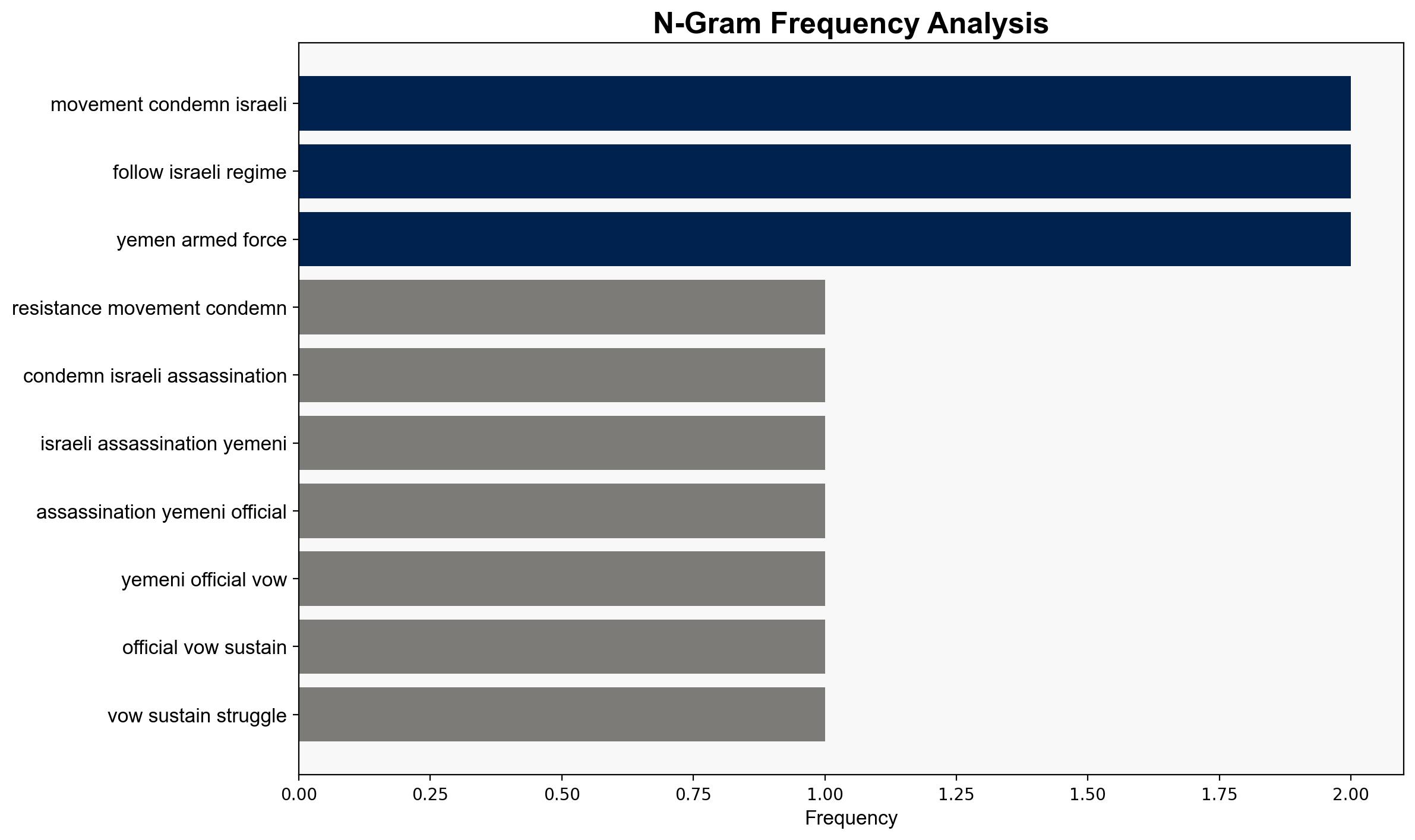Resistance movements condemn Israeli assassination of Yemeni officials vow sustained struggle – Globalsecurity.org
Published on: 2025-08-31
Intelligence Report: Resistance movements condemn Israeli assassination of Yemeni officials vow sustained struggle – Globalsecurity.org
1. BLUF (Bottom Line Up Front)
The most supported hypothesis is that the assassination of Yemeni officials by Israel is likely to strengthen the resolve and unity among regional resistance movements, leading to increased hostilities and potential escalation in the region. Confidence level: Moderate. Recommended action: Enhance intelligence monitoring and diplomatic engagement to mitigate potential escalation.
2. Competing Hypotheses
Hypothesis 1: The assassination will galvanize regional resistance movements, leading to increased coordination and attacks against Israeli interests.
Hypothesis 2: The assassination will cause internal divisions within resistance movements, weakening their overall effectiveness and reducing immediate threats to Israeli interests.
Using the Analysis of Competing Hypotheses (ACH) 2.0, Hypothesis 1 is better supported due to the strong public statements of unity and condemnation from multiple resistance groups, indicating a shared resolve to retaliate.
3. Key Assumptions and Red Flags
– Assumption: Resistance movements have the capability and intent to coordinate effectively across borders.
– Red Flag: The potential for misinformation or propaganda influencing public statements and perceived unity.
– Blind Spot: Limited insight into the internal dynamics and potential dissent within resistance movements.
4. Implications and Strategic Risks
– Increased risk of coordinated attacks on Israeli and allied interests, potentially extending beyond the Middle East.
– Escalation could lead to broader regional conflict, involving state and non-state actors.
– Economic impacts due to potential disruptions in oil supply routes and increased military expenditures.
– Cyber threats may rise as resistance movements seek asymmetric methods to retaliate.
5. Recommendations and Outlook
- Enhance intelligence sharing with regional allies to monitor potential threats and preempt attacks.
- Engage in diplomatic efforts to de-escalate tensions and address underlying grievances.
- Scenario Projections:
- Best Case: Diplomatic interventions lead to de-escalation and renewed peace talks.
- Worst Case: Full-scale regional conflict involving multiple state actors.
- Most Likely: Continued low-intensity conflict with periodic escalations.
6. Key Individuals and Entities
– Abdul Malik al-Houthi
– Mahdi al-Mashat
– Ahmed Ghaleb al-Rahawi
– Hamas
– Hezbollah
– Ansarullah
7. Thematic Tags
national security threats, cybersecurity, counter-terrorism, regional focus





